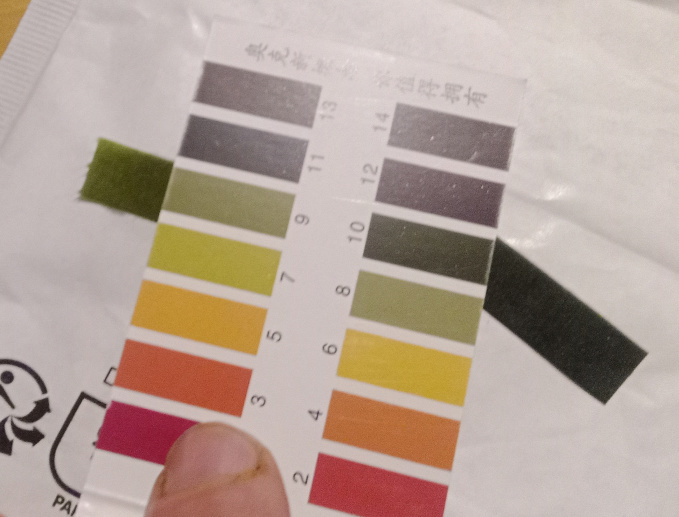I really don't get how the chemistry works.
Like, I understand that the "baking soda"
(I'm not sure the term "sodium bicarbonate" is actually technically correct, so I'll just use the common term)
[EDIT: this was my first point of confusion]
has water molecules chemically bound inside its crystal structure,
[no]
and that heating it breaks those off and converts it to the anhydrous form, "washing soda"
[no]
("sodium carbonate" apparently?)
which is about 10-times stronger of a base.
(eg of claim (ie "10-times stronger"): youtube Adam Ragusea's "Ramen orecchiette — easy homemade alkaline noodle soup")
The problem is, when I go to make a noodle dough with dry "washing soda",
I find I need to add it to water and heat it first to really get it to dissolve,
which complicates the process of making a dough
(especially if you're using eggs, so you need to be careful to get it cool again before you mix those in).
So I was wondering if I could just pre-dissolve the "washing soda", and just use like a spoonfull of that in each batch of dough, except...
How does that not just convert it back into weaker "baking soda"?
EDIT:
Okay, so what thought I read about "sodium bicarbonate" being a technically incorrect misname was just completely wrong
https://en.wikipedia.org/wiki/Sodium_bicarbonate#Thermal_decomposition
That is, the thermal decomposition actually is changing the molecule itself,
and not just converting the crystal structure to the anhydrous form?
https://en.wikipedia.org/wiki/Sodium_carbonate
EDIT EDIT:
I have no idea what I was thinking, where the heck I thought I read that.
maybe I was vaguely remembering that "sodium bicarbonate" (NaHCO3) doesn't actually have double the CO3, but rather, "sodium carbonate" (Na2CO3) has double the Na relative to "sodium bicarbonate"?
And I somehow got that confused into... the thing about "water of hydration/crystallization"??
Or maybe I should just find some jiǎnshuǐ(碱水 (鹼水)) / kansui(かん水) or something, i dunno...?
[which is I believe something like 80% potassium carbonate and 20% sodium carbonate dissolved in water (not sure what concentration)]

